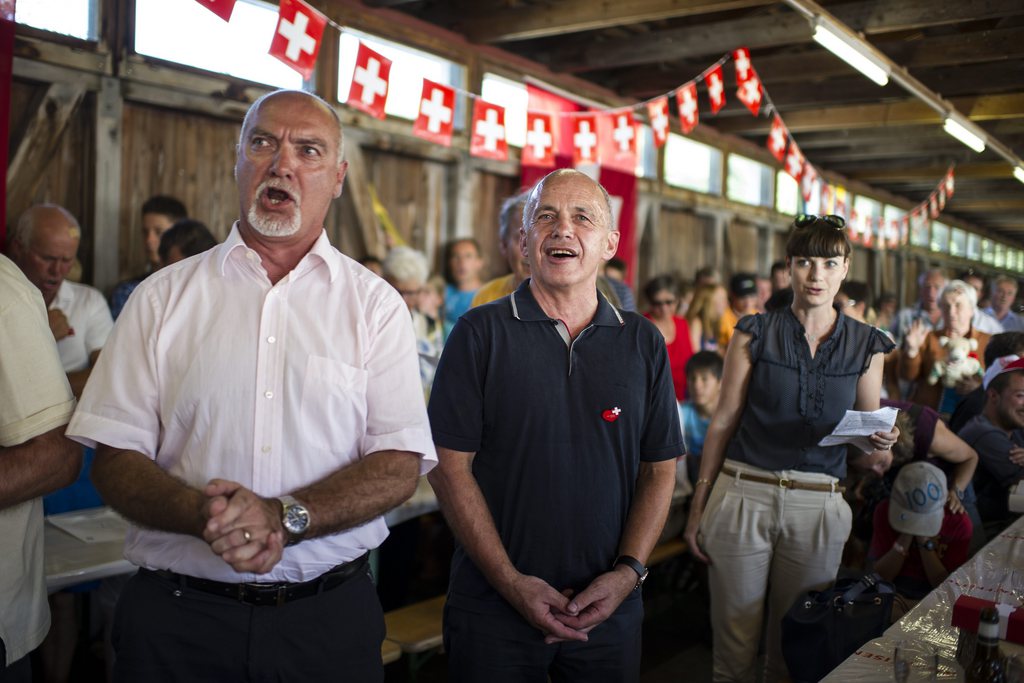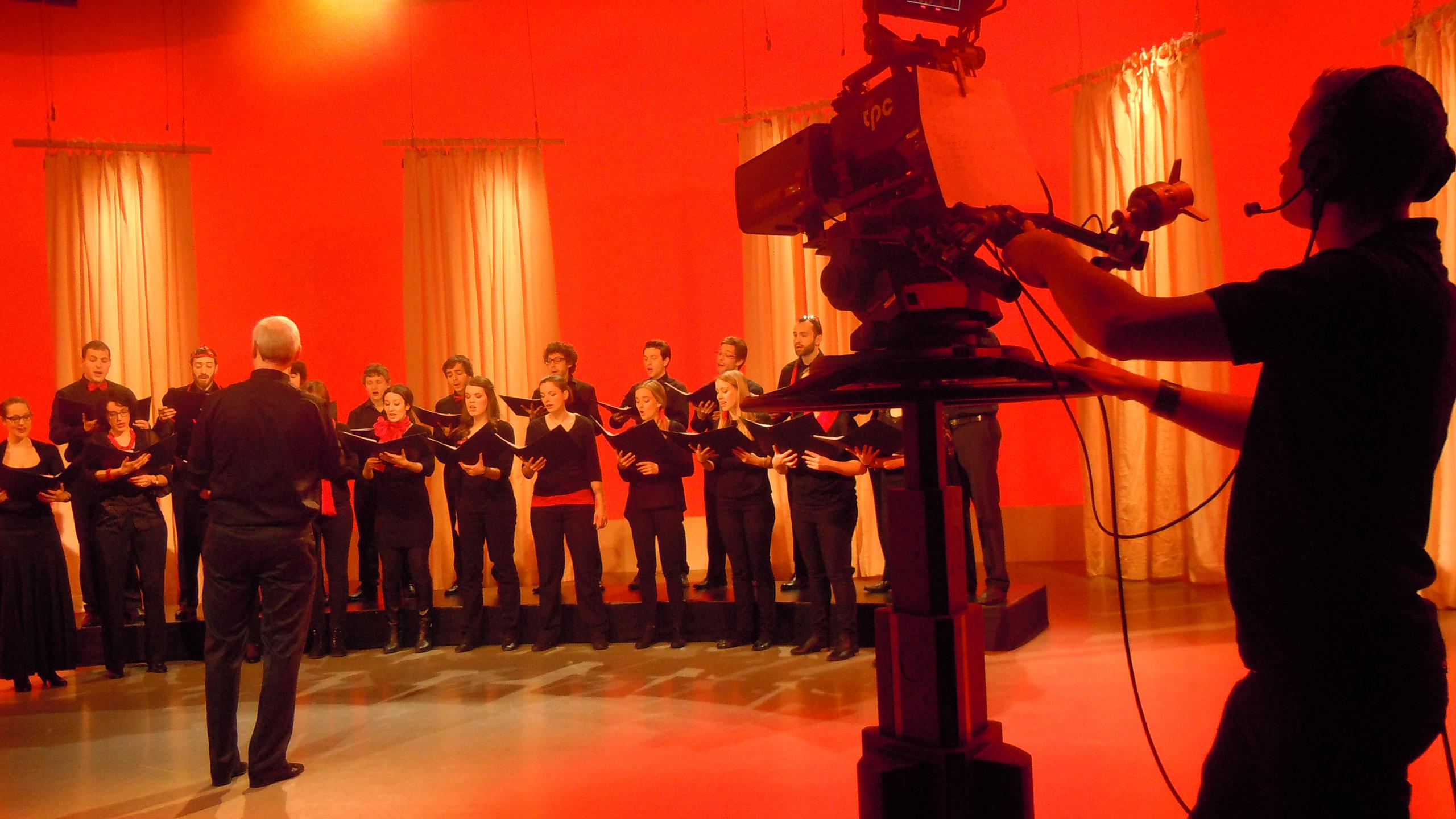Ode to unity in four languages

It’s not easy changing course in a country that values its history and autonomy as much as Switzerland does. If you think hammering out an agreement with the European Union is difficult, try convincing the Swiss people to adopt a new national anthem.
For more than two years, the Zurich-based Swiss Society for the Common Good (SSCG) has been trying to do just that. After a contest in which 24,000 people voted on more than 200 entries submitted in the country’s four national languages, the winning text premiered at the August 1 Swiss National Day celebration on the Rütli meadow, where Switzerland was born 725 years ago.

More
Folk called on to fine-tune national anthem
“The Rütli is a very special place, a mythical place,” said Annamarie Huber-Hotz, president of the Swiss Red Cross (SRC), speaking there on the occasion of the SRC’s 150th anniversary. “Here we reflect on all that unites us. Here we gather insight and strength from our history.”
A fitting place for the introduction of a new text to accompany a 170-year-old melody by Alberik Zwyssig. Especially a text which – according to the contest guidelines – was expected to draw on the values in the preamble to the Swiss Constitution.
On August 1, 1,400 Swiss citizens, international diplomats and other guests gathered on the Rütli to celebrate Switzerland’s history and values by watching flag throwers, eating sausages, listening to speeches and alphorns, and singing the Swiss national anthem: in two versions and four languages.
Much ado about nothing
But the new anthem – written in German by Werner Widmer of Zurich and later translated into French, Italian and Romansh – is far from being accepted by the Swiss population. In the weeks leading up to the Swiss holiday, the SSCG sent the proposed lyrics and scores to all cities and villages, schools and choirs in Switzerland, as well as to the Swiss associations abroad.
Some, like a group of schoolchildren from canton St Gallen, were so excited about the project that they not only learned the text but also created a video illustrating the principles contained in the anthem.
Others, like the Bernese politician Eric Hess from the conservative right Swiss People’s Party, vowed to walk out of an August 1 celebration in Bern if the proposed new anthem, “White cross on a red background”, was sung.
“I was in fact surprised by the strength and the power of this conservative position,” says Werner Widmer.
People who reject the new anthem “are not comparing the texts”, he thinks. “Because if they did that, they would see that the new text is more suitable for today. But they are against any change. And that’s the problem. It’s an emotional problem. It’s a formal discussion. No new anthem.”
In social media, feedback was predominantly negative leading up to the holiday, although not often shared.
One Twitter user commented on the fact that the non-profit SSCG had spent a considerable amount of money without being asked to carry out the project by cabinet or parliament. “If I were a donor, I would not be happy.”
Die #SGGExternal link hat keine Legitimation! 700'000CHF für ein Projekt ohne Auftrag? Als Spender hätte ich keine Freude @20minExternal link https://t.co/llzjumZlGTExternal link
— Karl Müller (@KarlMller13) August 1, 2016External link
Another tweeter said that when the time came to sing the new “Swiss verse”, which is a mixture of the four Swiss languages, he kept his mouth closed. Singing was “out of the question!”
There was a tweet in favour of the new anthem text because it no longer mentions God, and “having a hymn for an anthem is ludicrous when one in four Swiss isn’t religious anymore.”
And there was a tweet from Ruedi Löffel, a member of the Bern cantonal parliament representing the centrist Protestant Party, who believes that God belongs in the anthem. There’s no need for a new text, he told a local newspaper. “It’s not always bad, hanging on to traditions.”
A long and winding road
According to Lukas Niederberger, director of the Swiss Society for the Common Good, the group was happy with the celebration on the Rütli. It’s prepared to bring the text back “again and again. For now it will go into the drawers, and dust will cover it over the next 365 days. Maybe we will also find other opportunities, like the Unspunnenfest, the Yodelfest, the Schwingfest,” he says.
The SSCG is prepared for a long battle. Maybe not 120 years – which is how long it took for the current anthem to receive government approval – “but we will try for the next five years at least. And if we see absolutely no progress, then we must also consider whether to continue the project.”
Like many Swiss, Niederberger is pragmatic. “If the population isn’t ready for a change, then we can’t force them.”

In compliance with the JTI standards
More: SWI swissinfo.ch certified by the Journalism Trust Initiative











You can find an overview of ongoing debates with our journalists here . Please join us!
If you want to start a conversation about a topic raised in this article or want to report factual errors, email us at english@swissinfo.ch.